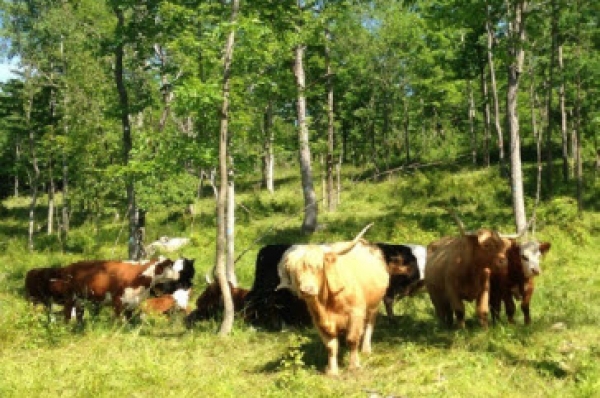Land use change, like cutting down a forest to make way for agriculture, can be a major contributor to climate change by releasing greenhouse gases into the atmosphere. Researchers at the University of New Hampshire studied a practice known as silvopasture which intentionally preserves trees in pastures where livestock graze.
They found that compared to a completely cleared, tree-less, open pasture, the integrated silvopasture released lower levels of carbon dioxide and nitrous oxide and soil carbon storage remained the same, offering a possible alternative for farmers with less climate consequences.
“We talked to a lot of farmers in the Northeast who are interested in the silvopasture approach but there aren’t a lot of data to help guide them through implementation, and responsible and strategic management,” said Alexandra Contosta, research assistant professor at UNH’s Earth Systems Research Center. “We wanted to see if silvopastures made a difference and found that there are benefits to this approach that could help both the farmer and the planet.”
Continue reading at University of New Hampshire
Image via University of New Hampshire


